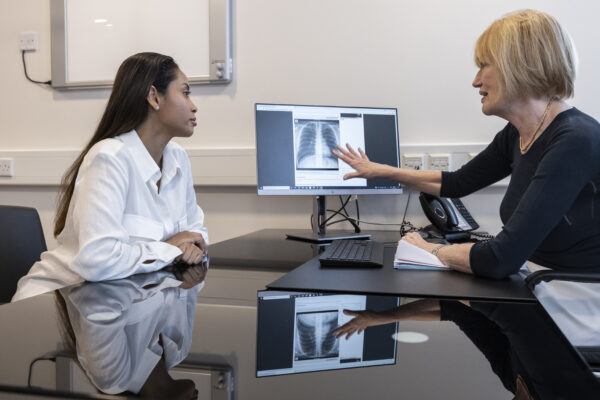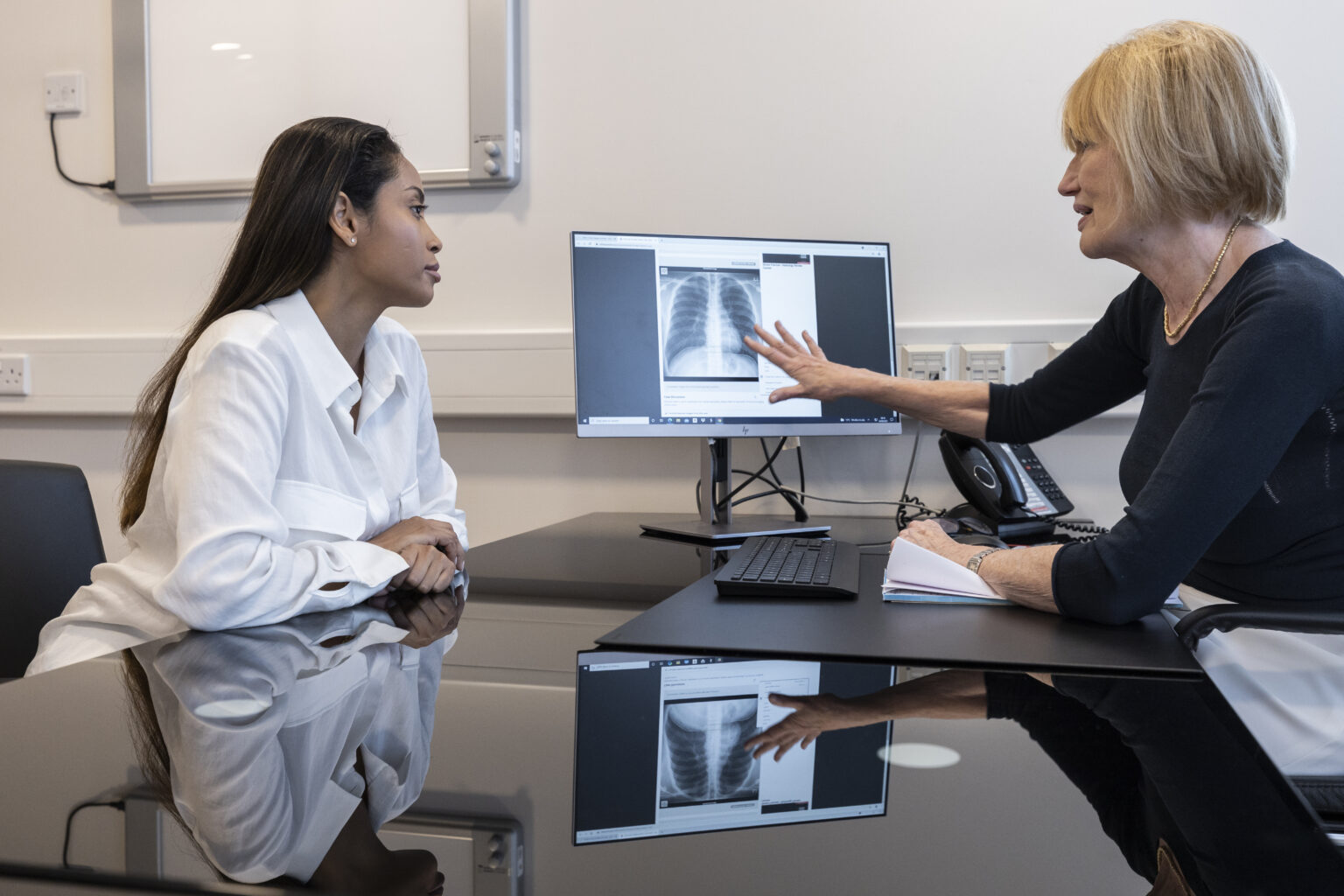Contact number: 020 7806 4060
What is Skin Prick Allergy Testing?
Skin prick allergy testing is a diagnostic procedure used to identify sensitivities to specific allergens. It involves introducing tiny amounts of potential allergens to the skin’s surface and observing any reactions. Common allergens tested include pollen, dust mites, pet skin or fur, and certain foods.
This test is quick and safe, making it suitable for both adults and children. At St John & St Elizabeth Hospital, we use this method to help patients understand their allergies and create tailored management plans to alleviate symptoms. Conveniently located in NW8, we serve patients across London with compassion and care.
Skin Prick Allergy Testing at St John & St Elizabeth Hospital
At St John & St Elizabeth Hospital, we provide private skin prick allergy testing in a calm and welcoming environment. Our hospital is known for its exceptional standards of care, with highly experienced consultants and friendly nursing teams.
Choosing us for your allergy testing offers several benefits:
- Same-Day Appointments: Access to prompt testing and results to minimise delays and time on a waiting list
- Expert Consultants: Our team of specialists ensures accurate diagnoses and personalised treatment plans.
- Convenient Location: Based in NW8, we’re easily accessible to patients across London.
- State-of-the-Art Facilities: We use modern equipment and methods to provide precise and efficient testing.
We aim to make your experience as comfortable as possible, delivering expert care with compassion and professionalism.
How much does a private skin prick test cost?
£235
Private Skin Prick Allergy Test costs £245 at St John & St Elizabeth Hospital.
The price shown includes all costs associated with your treatment, from admission to discharge. Doesn’t include your consultant’s fees.
Our hospital fee is guaranteed at the price quoted and valid for one month from the date issued, subject to pre-assessment.
How to pay for your treatment
If you’re… paying for yourself
Did you know you don’t need private medical insurance to come to St John & St Elizabeth Hospital? As a self-pay patient, you can access safe, outstanding quality health care at times to suit you.
For scans and tests, as well as to see most consultants, you’ll still need to be referred by a medical professional like your GP, but as a self-pay patient, the process is more straightforward. You won’t need authorisation from an insurance provider, and you’ll have greater choice of consultant and appointment times.
If you’re… insured
St John & St Elizabeth Hospital is approved by all major medical insurance companies. If you have a personal private health insurance policy, or your company provide it for you, you can use it to pay for your care from your initial consultation through to treatment, surgery and aftercare such as physiotherapy. Not all private health insurance plans cover the same things. It’s very important to check exactly what you are covered for with your insurance provider.
Frequently Asked Questions about Skin Prick Allergy Testing
St John & St Elizabeth Hospital is located in St John’s Wood (NW8), a prestigious and well-connected area of North West London. Known for landmarks such as Regent’s Park and Abbey Road Studios, our hospital is conveniently accessible from neighbouring areas including Hampstead (NW3) and Kilburn (NW6):
By Tube: St John’s Wood station (Jubilee Line) is less than a 5-minute walk from the hospital. For patients travelling from Hampstead (NW3), Finchley Road station on the Jubilee Line is a quick and easy route. Kilburn (NW6) is also served by the same line, offering excellent access.
By Bus:
Wellington Road: Routes 13, 46, 82, and 113 stop near St John’s Wood Underground Station, just a short walk from the hospital.
Circus Road: Routes 46 and 187 stop close to the hospital’s Circus Road entrance.
Abbey Road: Routes 139 and 189 stop near the junction where Grove End Road becomes Abbey Road, providing easy access.
Major Roads: If you’re coming from NW3 or NW6, you can use main routes such as Finchley Road or Kilburn High Road for direct access.
Our prime location in St John’s Wood ensures convenient travel for patients from across London
Yes, skin prick allergy tests are widely regarded as accurate for diagnosing common allergies such as pollen, dust mites, and pet fur & skin. The test works by exposing the skin to controlled amounts of allergens and observing immediate reactions. However, it’s important to note that test accuracy may vary depending on the allergen being tested and your unique biology. At St John & St Elizabeth Hospital, you’ll be seen by an expert consultant so you’ll also be able to talk through the results and your concerns
Skin prick allergy tests can provide useful insights into food allergies, but their accuracy for certain foods may vary. They are excellent for identifying immediate-type allergic reactions, such as those involving nuts, eggs, or shellfish. For more nuanced food sensitivities, additional tests like blood tests or supervised food challenges might be recommended. Our consultants will create a tailored testing plan to suit your needs.
Due to the nature of skin prick testing, you will receive your results during the examination. From the test results, the doctor will be able to prescribe solutions such as:
- Tablets
- Inhalers
- Creams
Unfortunately, allergic reactions aren’t something that you can cure. However, if you have a positive reaction to the medication there is no reason why you won’t be able to live a normal life free, for most people, of any allergy reaction.
The skin prick testing procedure typically follows this system:
- First, a nurse or doctor will take your forearm and write letters or numbers on it. Each symbol will directly correspond to the allergen being tested.
- Next, the nurse or doctor will then drop a bit of the solution next to each letter. Each drop will contain a different allergen – this will allow us to test which allergen produces a positive reaction or a negative (an allergic) one.
- The nurse or doctor will then use a small metal instrument to touch each drop, many people equate this to a small scratch, this is done so that the allergen seeps into the skin.
- Afterwards, the nurse or doctor will blot the solution off the skin and send you to the waiting room for 10 – 15 minutes. During this time, you may notice that your skin begins to form a reaction – for example, it may feel itchy or get tight.
- Once the time is up, you’ll be called back into the room and the nurse or doctor will measure the size of each reaction. Based on the severity and size of each of the skin reactions, the nurse or doctor will be able to offer a diagnosis and come up with an appropriate treatment plan.
Medically reviewed by Professor Margaret Johnson - MD FRCP Higher Professional Training in General Medicine & Thoracic Medicine on 20/12/2023


